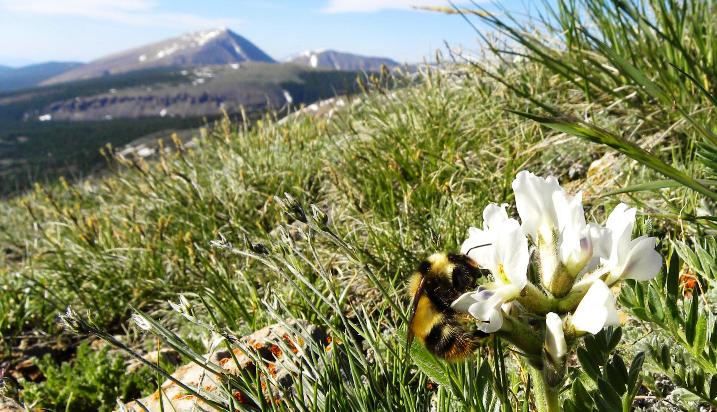Podcast: Play in new window
BOB HIRSHON (host):

Bees and climate change. I’m Bob Hirshon and this is Science Update.
Climate change in the Rocky Mountains could be putting a mutually beneficial partnership between flowers and the bumble bees that pollinate them at risk. This according to SUNY College at Old Westbury plant ecologist Nicole Miller-Struttmann. She and her colleagues report in Science magazine that over the past 40 years, the bees’ tongues have gotten shorter. Warmer summers mean drier soil, leading to fewer flowers. She says shorter-tongued bees do better in such conditions, because they can visit a wider variety of flowers than longer-tongued bees, which specialize on long-tubed flowers, like larkspur and foxglove.
NICOLE MILLER-STRUTTMANN (SUNY College at Old Westbury):
So bees that have long tongues can get more nectar out of those flowers, but they also tend to be more specialized.
HIRSHON:
Fewer long-tongued bees could spell bad news for the plants they specialize on. I’m Bob Hirshon, for AAAS, the science society.
